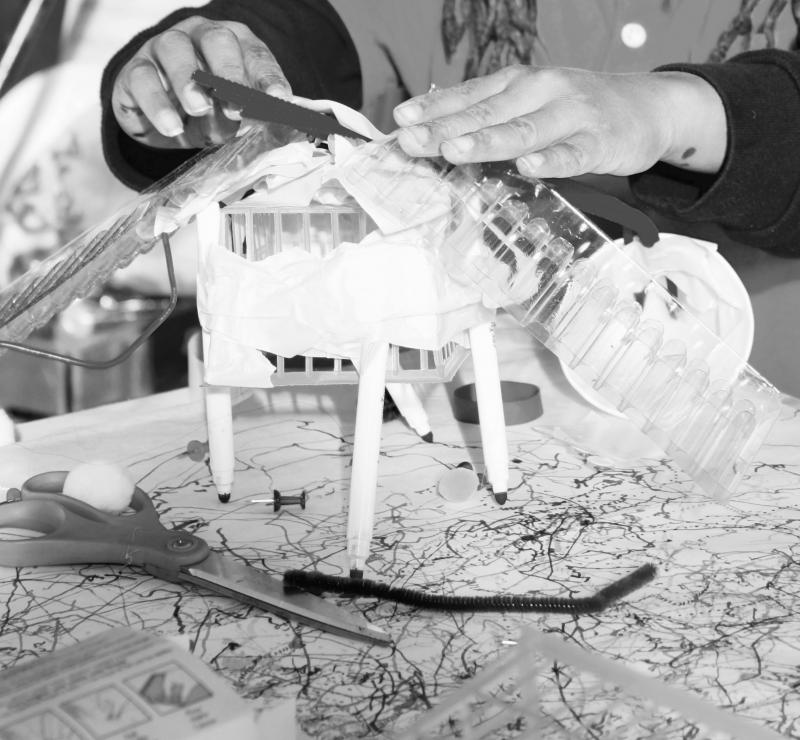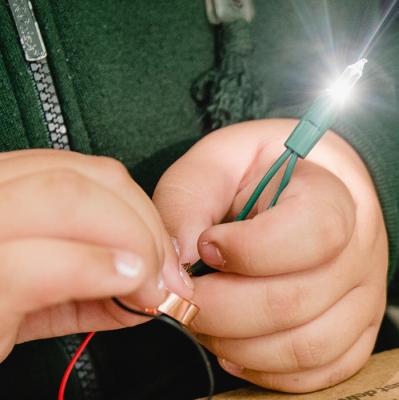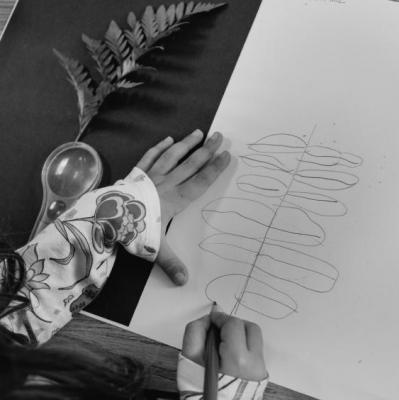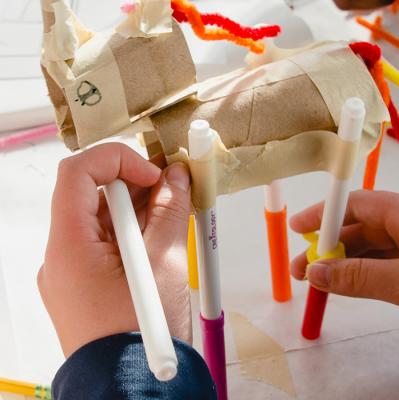The Inquiry Cycle is a tool to support teacher and student learning—and to make that learning visible—all the while exploring the capacities associated with the Agency by Design framework for maker-centered learning.

The Inquiry Cycle is a tool to support teacher and student learning—and to make that learning visible—all the while exploring the capacities associated with the Agency by Design framework for maker-centered learning.


Educator Gus Goodwin shares how his students engage with the Agency by Design capacities during a design and engineering challenge, specifically highlighting the capacity Exploring Complexity.
Video by Alex Coppola
Featured photo by Jaime Chao Mignano

This tool guides young learners to look closely at a system and explore its complexity by directly experiencing the system and reflecting on that experience. This is particularly helpful when working with very young students who may struggle to conceptualize a complex system without direct experience. In addition, this tool provides suggestions for making student thinking visible by encouraging students to share their ideas and learn from each other.

What do we want our learners to be like when they leave our classrooms at the end of the year? What does authentic learning look like in a maker-centered classroom? Your response to these questions might be an indicator of what type of learning you value as a teacher. Inspired by Carlina Rinaldi and her writing on the relationship between documentation and assessment, we used these questions to identify what types of learning or dispositions teachers value most within their contexts. Think of it as a lens for looking at learning. What we quickly realized is that the values educators bring to their work have implications connected to assessment.
這個思考模式鼓勵學生能夠慢下来,仔细觀察其中一個系统。通過這樣幫助學生更好地認識具體系統裡無論是直接或間接相關的人物,學生也會注意到系统裡任何一點變化,也許都會有意無意地影響到系统的其它方面。

Agency by Design project manager Jen Ryan examines the use of the word maker and offers an alternative reframing for an emerging field.

An easy reference handout of the Agency by Design Framework for Maker-Centered Learning.

This tool is connected to the Agency by Design Making Moves. The Making Moves identifies three maker capacities that support a sensitivity to design, along with their associated learning moves. Here you’ll find three observation sheets, one for each of the maker capacities: Looking Closely, Exploring Complexity, and Finding Opportunity.

How do you define tinkering? In this post, Agency by Design principal investigator Shari Tishman tinkers towards a definition of tinkering that considers standard text book definitions, examples from real life tinkerers, and a consideration of the “symptoms” of tinkering.